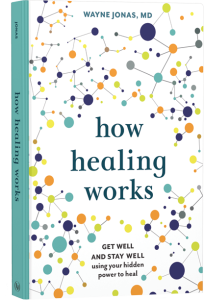Half of all adults in the United States have at least one chronic disease and 25 percent have two or more.
Health coaching helps these patients understand their chronic diseases and actively participate in their care. Coaches support patients in developing and following action plans for healthier behaviors. Health coaching has clinical and operational benefits and contributes to integrative primary care.
Integrative primary care is the coordinated delivery of evidence-based conventional medical care, complementary medicine, and lifestyle medicine within a primary care practice.
Health coaching in primary care helps patients with chronic diseases or complex health needs better understand their diseases and actively participate in their care. Health coaches are trained medical assistants, nurses, or other staff members who:
- Provide patient education and support
- Assess patients’ understanding
- Engage patients in developing and following action plans for healthier behaviors
Health coaches support patients in making and sustaining healthy behaviors through ongoing check-ins between doctor’s visits, either in person or by telephone.
A nationally recognized expert in health coaching, Dr. Thomas Bodenheimer insists that telling patients what to do, instead of engaging them in decisions about their health, doesn’t work.
Dr. Bodenheimer is a professor in the department of family and community medicine and founding director of the Center for Excellence in Primary Care at the University of California, San Francisco. Before joining academia, he spent 32 years as a primary care practitioner.
“Health coaching is finding out what patients are willing and able to do and meeting them halfway.” — Dr. Bodenheimer
In 2016, he developed the Health Coaching Implementation module for the AMA’s STEPS ForwardTM program practice transformation series. STEPS Forward offers proven strategies to help physicians improve the efficiency of their practices and works toward reaching the Quadruple Aim: better patient experience, better population health and lower overall costs with improved professional satisfaction.
Dr. Bodenheimer’s health coaching model is based upon:
- Ask-tell-ask
- Action plans
- Closing the loop (teach-back)
Ask-Tell-Ask
Instead of giving patients a lot of information and telling them what to do, health coaches:
- Ask patients what they know and what they want to know
- Tell patients what they want to know
- Ask again, to find out whether patients understand what the health coach said and what else they want
to know
Action Plans
An action plan is an agreement between the patient and the primary care provider or health coach describing a behavior change the patient wants to make. The provider, the health coach or the patient can set the specific health goal. The patient, however, must agree on the goal.
The action plan may focus on simple steps toward an end goal. For example, if the goal is to lose 20 pounds, the behavior change may be eating ice cream twice a week instead of every day. “If people are successful at doing something, their confidence goes up and they start doing more things,” says Dr. Bodenheimer.
Closing the Loop (Teach-Back)
Closing the loop ensures that the patient understands the care plan recommended by the clinician. The clinician or the health coach asks the patient to repeat back the information about what the patient understands in his/her own words. If the patient doesn’t state the information correctly, the process is repeated until the patient is able to verbalize what to do. The health coach can use an after-visit summary from the clinician to close the loop.
Half of all patients leave a medical visit without understanding what their physician told them.
Teach-back is a simple solution to this problem, says Dr. Bodenheimer, and you can do it in as little as 30 seconds. It’s particularly effective in improving medication adherence.
Teach-back has been endorsed as a national standard of care by:
- American Academy of Family Physicians
- American College of Surgeons
- American Hospital Association
- Federation of American Hospitals
- The Joint Commission
You can use teach-back as part of health coaching or separately.
The HOPE note is a tool that helps physicians identify the patient’s values and goals and assists the patient in choosing their top three action items to work on. Closing the loop is part of the HOPE note process.
The Role of Health Coaching in Integrative Primary Care
Health coaching provides a way of improving quality for high-value integrative primary care:
- Upshifted staff roles: Physicians are supported by a team of clinical and non-clinical professionals who practice near the full potential of their education, skills, and licensure. As a result, physicians can devote more time to providing integrative health care.
- Patient engagement in care decisions: Working together, providers and patients optimize health and healing. The provider identifies the patients’ values and goals for life and for healing while providing evidence-based conventional, complementary, and self-care and support to help patients meet their goals.
To learn more about health coaching and its benefits, check out this primary care case study.
 Your Health Into Your Own Hands
Your Health Into Your Own Hands
Drawing on 40 years of research and patient care, Dr. Wayne Jonas explains how 80 percent of healing occurs organically and how to activate the healing process.


